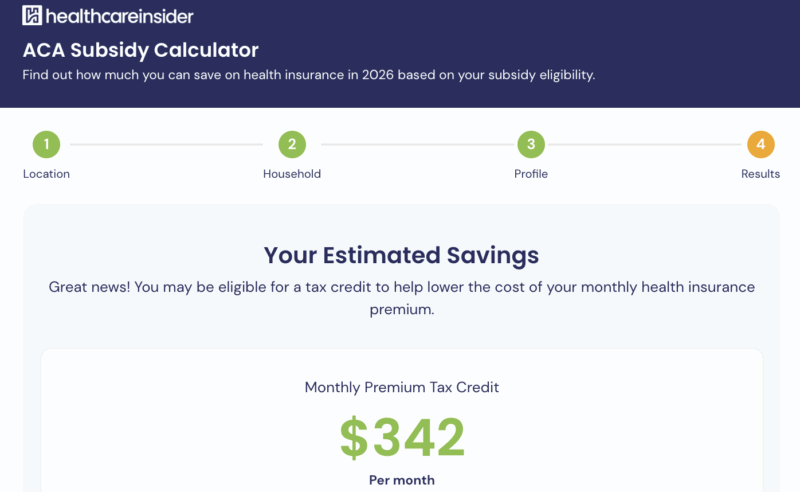Written by Shannon Lorenzen
HealthCare Writer
Reviewed by Ronnell Nolan
Expert Reviewer
We want to help you make educated healthcare decisions. While this post may have links to lead generation forms, this won’t influence our writing. We adhere to strict editorial standards to provide the most accurate and unbiased information.
Does short-term insurance qualify for Obamacare? Equating short-term health insurance to Obamacare (also known as the Affordable Care Act (ACA) or major medical care) is like comparing apples and bananas. Yes, they’re both types of health insurance. But beyond that, there are a lot of important differences between the two types of plans.
The ACA specified that Short Term Medical would not be considered ACA compliant. Originally, you could purchase a Short Term Medical Plan, however, you would be subject to the ACA penalty. Since the penalty is now zero, you can purchase a Short Term Medical without the threat of a penalty. So how exactly do the two types of plans differ? And which one is right for you?
Short-Term vs. Major Medical Insurance: What’s the Difference?
Ideally, most of us will have major medical insurance. The benefits of having insurance under the Affordable Care Act far exceeds the coverage you can get with short-term health plans. However, there are times when short-term health insurance is a necessary option.
Short-Term Health Insurance (also known as temporary health insurance or short-term medical) is essentially a safety net for when you face a gap in your health insurance coverage. If you’re between jobs, leaving school, aging out of your parent’s health insurance, or losing your current healthcare plan, short-term insurance can offer an affordable solution when you most need it.
However, the amount of care and available services you can receive under short-term health insurance aren’t nearly as thorough as what you get with a major medical plan. Serious pre-existing health issues (some plans have as much as a five-year look-back for pre-existing conditions) can also affect the amount you pay for a plan, or even affect your ability to sign up. Therefore, short-term plans should only be viewed as a temporary solution to your healthcare needs.
Obamacare (Affordable Care Act) is a type of creditable coverage, meaning it meets all of the requirements laid out by the Affordable Care Act. These plans are structured around guaranteed coverage for 10 essential health benefits. Obamacare (ACA) insurance is “guaranteed issue” during the annual 6-week Open Enrollment Period, so you’re guaranteed acceptance into your choice of the plan regardless of your health history.
With Obamacare (Affordable Care Act), you may also be able to qualify for income-based subsidies. These Obamacare subsidies are designed to make insurance more affordable if your household income is between 100%-400% of the Federal Poverty Level. (If you are offered an affordable plan (according to the ACA) and it meets essential coverage by your employer, you nor your employees are eligible for a tax subsidy). The subsidies are based on your gross income found on line 7 of your 2019 Form 1040.
Here’s a comparison of the coverage you can expect to receive:
| Short-Term Health Insurance | Obamacare/ACA/Major Medical Insurance | |
| Availability | Join at any time | Sign up during the annual Open Enrollment Period or qualify in special circumstances |
| Acceptance into plan | You have to apply and be approved for coverage. Depending on your health history, you could be denied coverage. | Guaranteed acceptance |
| Length of coverage | 30 days to 364 days with 2 renewals (but it depends on the state) | Based on the calendar year, January – December. |
| Doctor visits for illness or injury | Usually (varies by plan) | Yes |
| Emergency services | Usually (varies by plan) | Yes |
| Hospitalization | Usually (varies by plan) | Yes |
| Maternity and newborn care | Not usually | Yes |
| Mental health and substance abuse care | Not usually | Yes |
| Pre-existing conditions coverage | Not usually | Yes |
| Preventative care | Sometimes (varies by plan) | Yes |
| Prescription drug coverage | Limited (varies by plan) | Yes (varies by plan) |
| Rehabilitative services and devices | Not usually | Yes |
| Monthly premium cost | Customizable, premium is based on plan chosen and extra’s added, such as RX, Dental or Vision | Fixed and guaranteed for one year. Can be as low as $0 with subsidies. Premiums vary and are based on the offset of a subsidy, your age, do you smoke and geography. |
| Deductible cost | Customizable, with many options available. | Many options are available, the higher the deductible, the lower the premiums. |
Choosing A Short-Term or ACA/Obamacare Plan
When it comes to health insurance, it’s true that you get what you pay for. While the rates for short-term healthcare are lower, you won’t be getting the benefits of the Affordable Care Act (ACA) health plans.
If your situation allows it, you should seek out major medical Obamacare plans that provide minimum essential coverage. These ACA plans are the best option for meeting all of your possible healthcare needs.
However, if you’re facing a gap in coverage or missed the open enrollment window, short-term healthcare is absolutely an option. While it is not designed as a lifelong solution, it does help protect you from healthcare emergencies and unexpected illnesses. But keep in mind, short-term plans can vary wildly on what they do and do not cover.
Regardless of which plan is right for you, it’s important you do your homework. Carefully check over any plan before you buy to make sure you’re getting the coverage you need. Insurance is too complicated to do alone, use the services of a professional agent/broker, they are free.
Thank you for your feedback!


 by
Ronnell Nolan |
Updated on
August 16, 2025
by
Ronnell Nolan |
Updated on
August 16, 2025 




